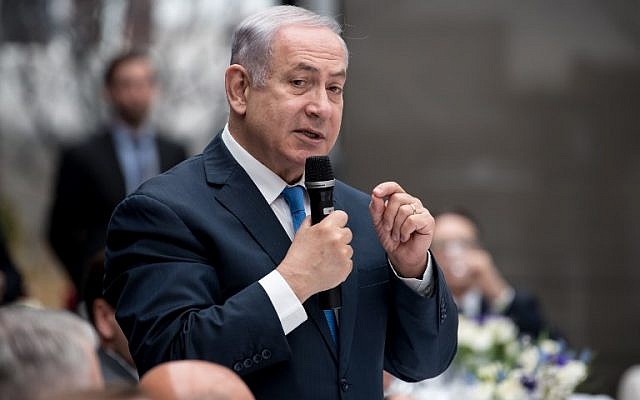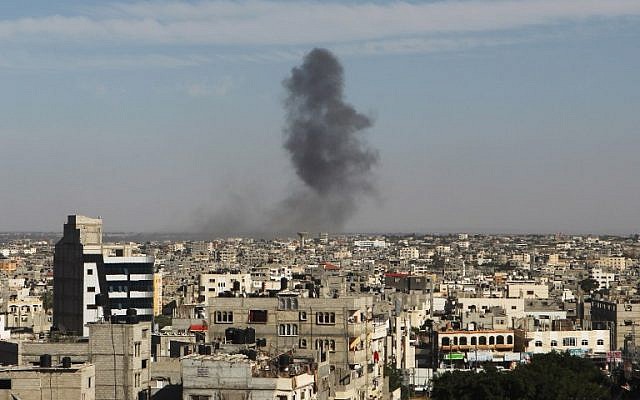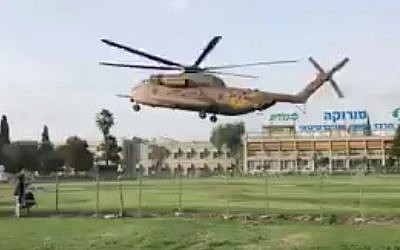After an IED attack on IDF troops, Netanyahu says relative calm maintained thus far by ‘putting pressure on Hamas’

MUNICH — Prime Minister Benjamin Netanyahu on Sunday credited Israel’s policy of targeting Hamas sites in the Gaza Strip in response to any aggression coming the territory with preventing additional attacks.
He was speaking a day after an improvised explosive device injured four IDF soldiers and a rocket fired from the Strip hit an Israeli house in the nearby Sha’ar Hanegev region.
“If we weren’t putting pressure on Hamas the way we do, we’d have what happened [yesterday] every day,” Netanyahu told reporters following a speech at the Munich Security Conference earlier in the day.
The prime minister would not confirm comments made by Defense Minister Avigdor Liberman, to the effect that the Popular Resistance Committees terrorist group was responsible for the IED attack.

“It doesn’t matter who did it. It matters who didn’t stop it,” Netanyahu said, referring to Gaza’s Hamas rulers.
Since the 2014 Gaza war, Hamas has prevented other terrorist groups in the Gaza Strip from carrying out attacks, leading to one of the quietest periods between Israel and the coastal enclave since the 1967 Six Day War, according to Israeli statistics on terror attacks.
“This isn’t about [Hamas] loving us, but about loving itself,” Netanyahu said.
Saturday’s attack represented the most significant strike from an armed group in the territory since the 2014 war.
In response to the initial IED attack and the rocket launch, Israel conducted a series of airstrikes in the Strip, targeting 18 sites connected to terrorist activities, according to the Israeli army.
The military said that those included an offensive tunnel dug toward Israeli territory from the Zeitun neighborhood of Gaza City.
In a separate incident on Saturday night, an IDF tank fired at a group of Palestinians who had approached the security fence “in a suspicious manner.” The Hamas-run Gaza health ministry reported that two of the Palestinians were killed and two more were seriously injured.
Despite the extensive strikes, the prime minister maintained that Israel “definitely doesn’t have an interest in escalating the situation.”

As of Sunday afternoon, two of the soldiers injured in the IED blast remained in serious condition, while the other three were said to be in moderate condition, according to Beersheba’s Soroka Medical Center, where the servicemen were initially taken.
One of the soldiers, whose father is a doctor at Jerusalem’s Hadassah Hospital Ein Kerem, was transferred there at the request of his family. His condition continues to be serious, the Jerusalem hospital said, and he is being treated in the hospital’s trauma center.
Doctors said the condition of all four soldiers has stabilized and there is no immediate danger to their lives.
As reported by The Times of Israel
